Animations about vaccination, Covid, HIV and pregnancy
Many countries have now lifted Covid restrictions and lockdowns. These short animated films provide guidance in the new normality where we learn to live with the virus. Some are aimed at a broad audience and are suitable for TV and social media campaigns. Others have more specific audiences, particularly pregnant women attending antenatal sessions. They were produced in partnership with research institutions in Zimbabwe, Uganda and UK.
Vaccination
The first three animations are about vaccination. They address some of the main barriers to people getting vaccinated and the misinformation spread by anti-vaxxers.
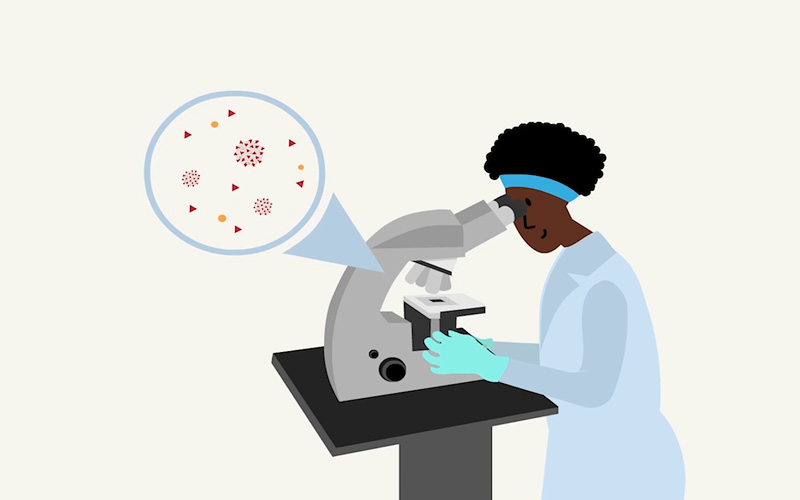
Vaccination – What is a virus?
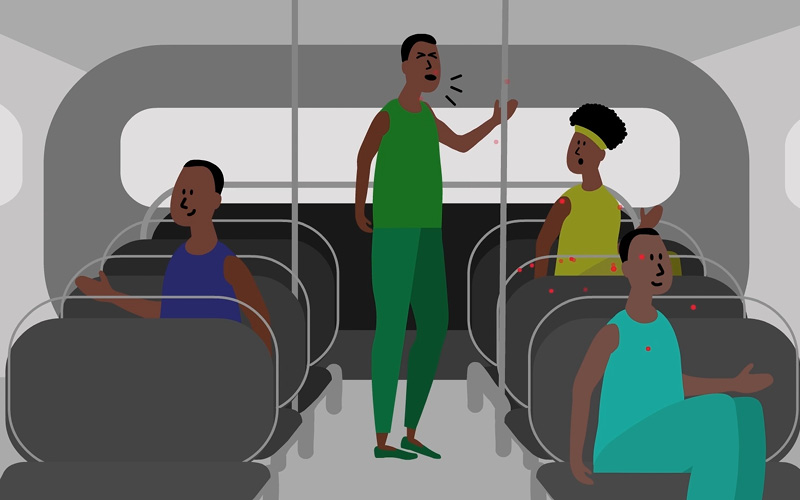
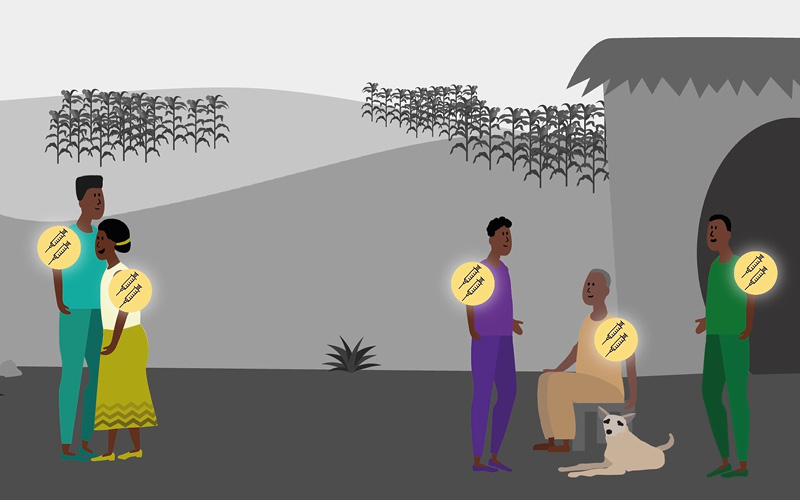
Covid at home
The next four animations are about living with Covid in a world where most of the formal restrictions and lockdown measures have been lifted.
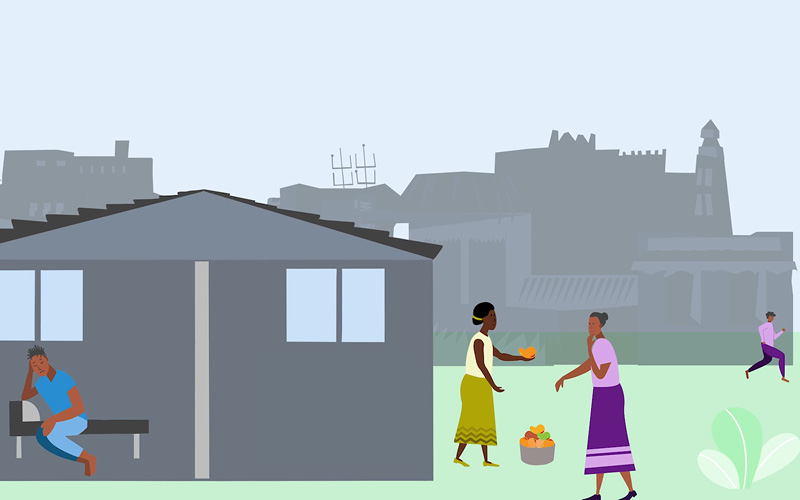
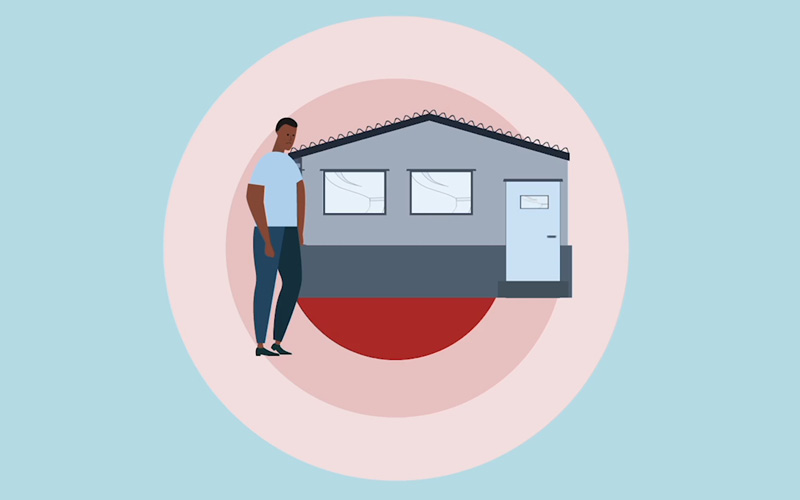
Covid at home – Self isolating
What does self isolating mean? This animation emphasises the continuing need to people with Covid to self isolate, especially those living with people who are vulnerable.
Zimbabwe version: English | Shona
East Africa version: English | Luganda | Acholi | Runyankole | Swahili
Malawi: Chichewa | English
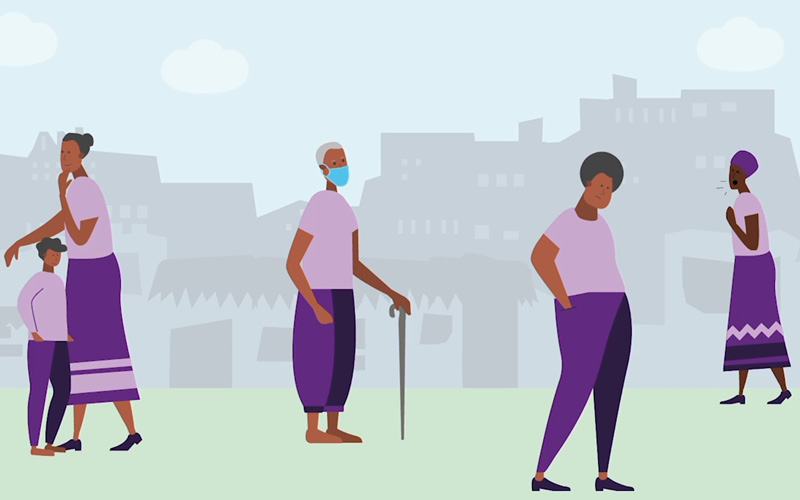
Covid at home – Caring for those vulnerable to Covid
How do you look after someone who is at a higher risk of becoming seriously ill at home? This short film emphasises the need to get medical advice early and to continue taking other medications.
Zimbabwe version: English | Shona
East Africa version: English | Luganda | Acholi | Runyankole | Swahili
Malawi: English | Chichewa
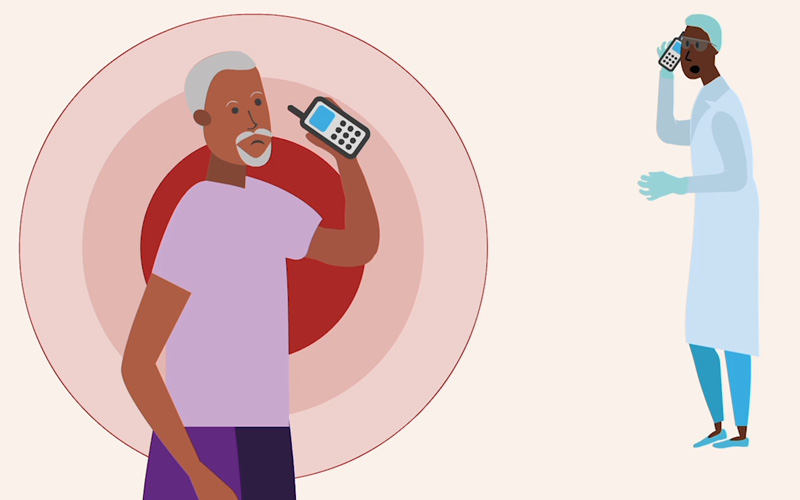
Covid, HIV and pregnancy
These films are aimed at an audience you might find in antenatal sessions, primarily pregnant women and their husbands/partners. ‘Staying healthy during pregnancy – Covid and pregnancy’ could be used for a much more general community audience as it is aimed at encouraging both women and men to go to antenatal sessions.
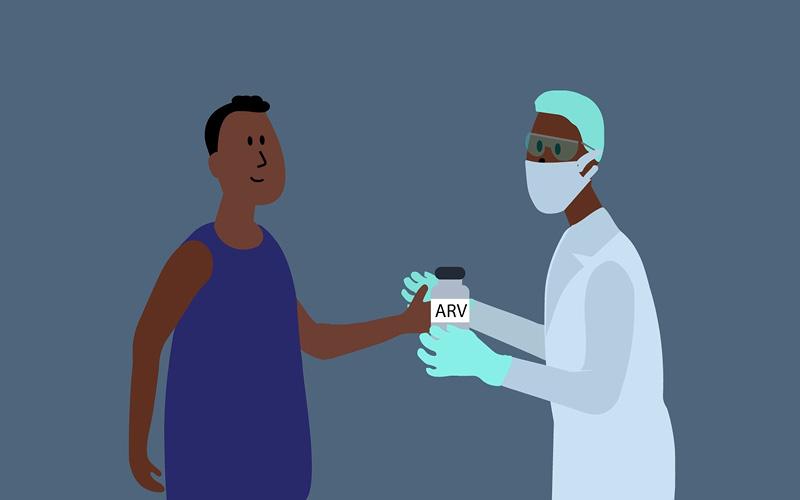
Covid and HIV
This single short animation looks at the importance of being on HIV treatment for those who are HIV positive. It also emphasises the need for everyone to know their HIV status because of the continuing risk from Covid.
Zimbabwe version: English | Shona
East Africa version: English | Luganda | Acholi | Runyankole
Malawi: English | Chichewa
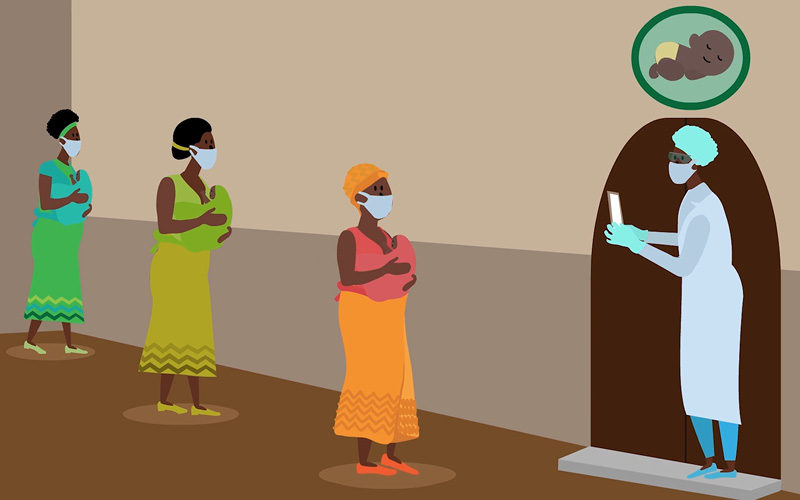
Staying healthy during pregnancy – Covid and pregnancy
This animation looks at the extra risk posed by Covid to pregnant women, particularly during the last three months of pregnancy. It emphasises the need to be in antenatal care and have the delivery in a health facility, as other health risks associated with pregnancy are much higher if left untreated.
Zimbabwe version: English | Shona
East Africa version: English | Luganda | Acholi | Runyankole
Malawi: Chichewa | English
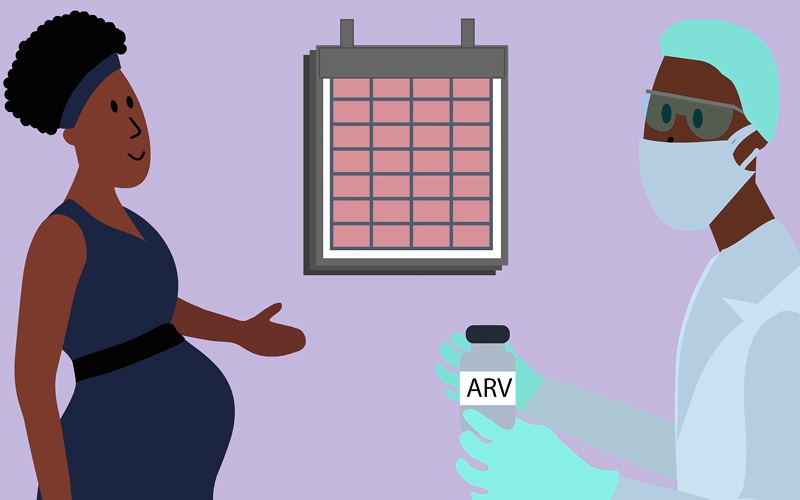
Staying healthy during pregnancy – Testing for HIV
This animation looks at why women need an HIV test during pregnancy. It explains the test and the benefits of treatment for prevention of mother-to-child transmission of HIV (PMTCT).
Zimbabwe version: English | Shona
East Africa version: English | Luganda | Acholi | Runyankole
Malawi: English | Chichewa
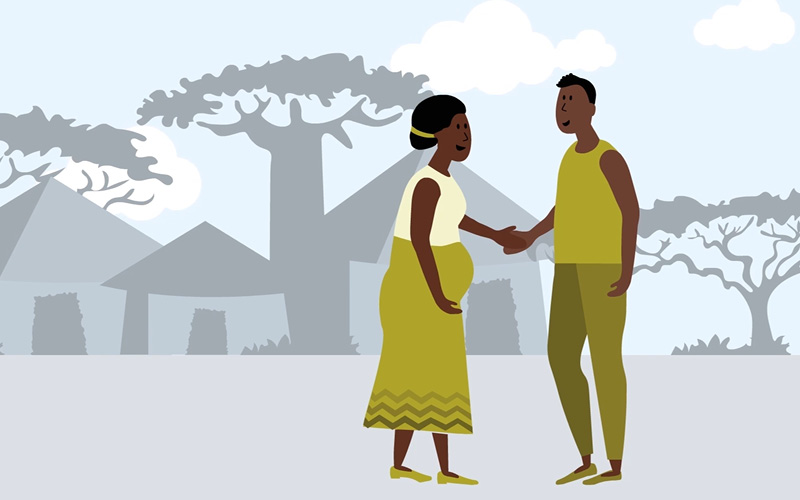
Staying healthy during pregnancy – How do ARVs work?
This explains how antiretroviral drugs (ARVs) work – both in terms of keeping those living with HIV healthy, and preventing them from infecting others. It uses the analogy of ARVs “putting the virus to sleep”.
Zimbabwe version: English | Shona
East Africa version: English | Luganda | Acholi | Runyankole
Malawi: Chichewa | English
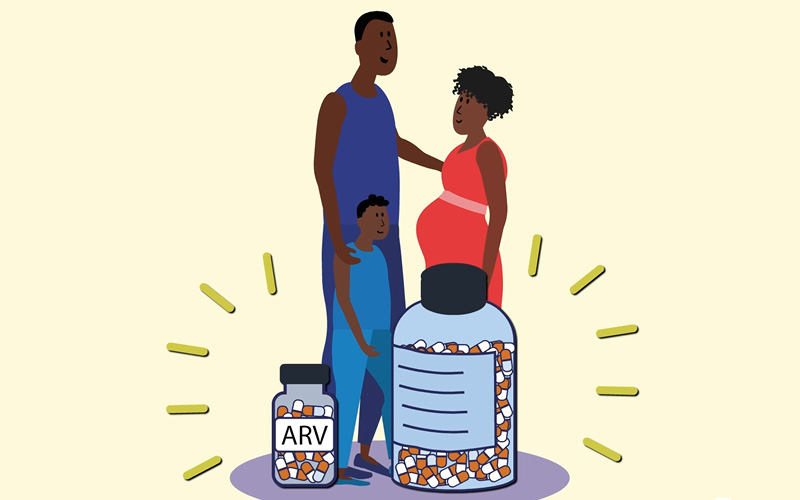
Staying healthy during pregnancy – Taking ARVs
This addresses some of the common barriers to taking ARVs. It acknowledges that many people find taking daily medicines difficult for many valid reasons. In particular it acknowledges that telling family or partners about HIV status can be difficult and urges women to get support from counsellors and health workers to do this.
Zimbabwe version: English | Shona
East Africa version: English | Luganda | Acholi | Runyankole
Malawi: English | Chichewa
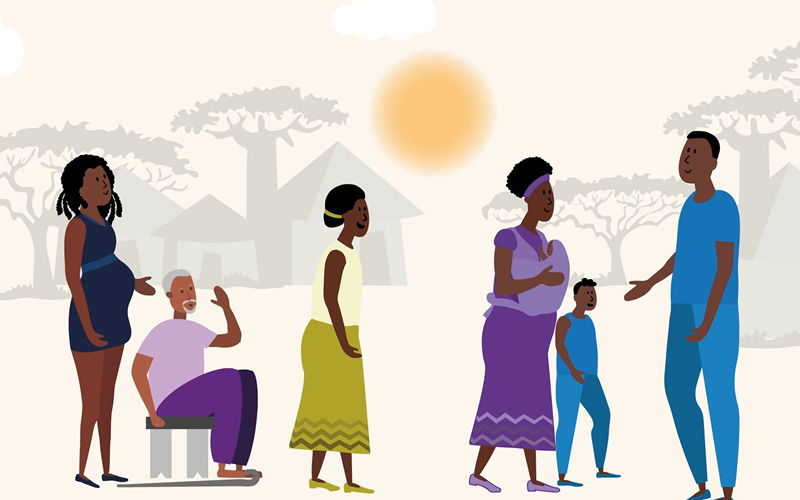
The animations have been produced in partnership with research institutions in Zimbabwe, Uganda and the UK, including: the MRC-CTU at University College London; University of Harare; Ezekiel Guti University (CRD), Zimbabwe; Joint Clinical Research Centre, Uganda.
Funding for the project came from ViiV Healthcare and the COVID-19 Africa Rapid Grant Fund. This partnership allowed us to research and address questions being asked in health facilities and communities in Zimbabwe and Uganda.
